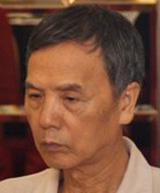On September 26, Turkey announced that the China Precision Machinery Import and Export Corporation had won the tender of the Turkish remote air defense and missile defense system “T-Loramids” project for a total price of $3 billion. Participating in the competition were the air defense missiles of the American Raytheon’s Patriot-3, Russia defense export company’s S-400, the Eurosam’s Aster 30 and the Chinese Red Flag-9 remote surface to air missile (Export model: FD-2000).
By winning the competition, China will export air defense weapons to a NATO country for the first time. As such, it is expected that China will further develop constructive military exchanges and cooperation with NATO countries. However, to the surprise of many observers, US State Department spokeswoman Jen Psaki said, “We of course have conveyed our serious concerns about the Turkish government’s contract discussions with a US sanctioned company for a defense missile system that would not be interoperable with NATO systems or collective defense capabilities. Our discussions will continue.” It is obvious to all why the US has expressed its serious concerns, and what the US is going to further discuss with the Turkish government. With further US intervention in the project, President Gul of Turkey said that “the purchase is not definite….there is a short list and China is at the top of it. We should look at the conditions, but there is no doubt that Turkey is primarily in NATO.” President Gul’s statement is viewed by many as a step back from the previous announcement.
US intervention in the cooperative project between China and Turkey is not glorious. China’s cooperation with Turkey in the area of defense should be encouraged and supported by the US, instead of being obstructed, as it is helpful to peace and stability in the world. Only when the US changes its Cold War mentality, can it have more respect for China, Turkey, and other countries, and objectively look at the project. The so-called interoperability issue, which is used as a pretext by the US for its obstruction, could be easily resolved if the US truly believes the wisdom of the peoples of China and Turkey.
The US should help NATO countries work together with countries in the East for the benefit of world peace. NATO is a product of the Cold War, which is over. As NATO’s chief adversary, the Soviet Union has disintegrated and the Warsaw Pact is no longer in existence. What should NATO do under the new situation? Whether to sow discord and create new divisions between the East and the West, or to increase mutual understanding and cooperation between them is a serious test for NATO. As a NATO country, Turkey has set a good example for other NATO countries by initiating military trade with a country like China, as such exchange and cooperation is beneficial to the improvement of relations between the East and the West.
China and the US have in recent months made fresh progress in military exchanges and cooperation with senior military leaders, exchanging frequent visits and naval forces conducting joint drills or exercises. Nevertheless, it is generally recognized that there are still quite a few obstacles blocking a new type of military relations from being fully established. Here, the key issue is a lack of strategic trust between the two countries. The unwise US intervention in the cooperative project between China and Turkey harms such strategic trust instead of increasing it. It is in the common interest of both China and the US to help promote China’s cooperation with NATO countries in the defense area.
China is committed to safeguarding the international non-proliferation regime and has made enormous contributions. China has put in place a whole set of laws and measures on export control, which are in full conformity with those of the international community. In addition, Chinese export and import companies have done their business by strictly observing those laws and measures. With regard to US sanctions against the CPMEIC and other companies in February this year, China lodged solemn representations with the US side and demanded that the US correct its mistakes by revoking the groundless sanctions. Instead of correcting its mistakes, the US went so far as to cite it as a reason to pressure Turkey to cancel the project with the Chinese company. Such gross violation by the US of the norms of international relations can hardly be tolerated.
It will be futile and harmful for the US to control every new development in global military exchanges and cooperation. The unjustifiable US intervention in the cooperative project between China and Turkey will inevitably arouse strong opposition from the peoples of China and Turkey. It is advisable for the US to stop such intervention at an early date.
Wu Zurong is a research fellow at China Foundation for International Studies.


